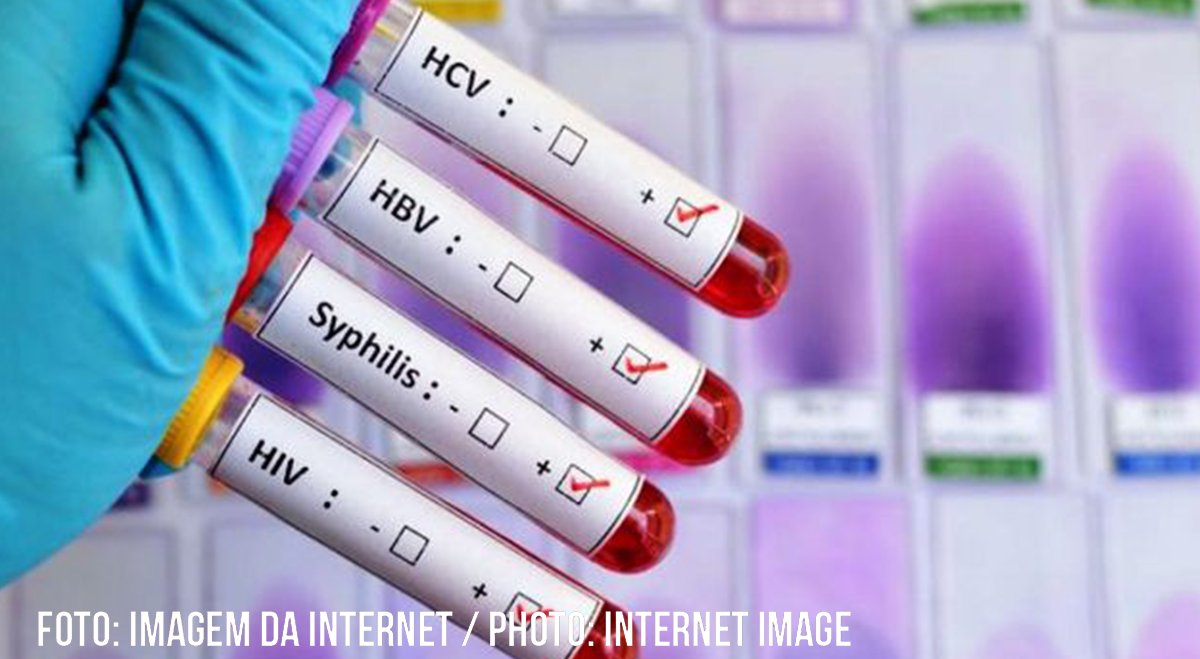
Case report: syphilis (VDRL 1:512) and HIV infection
Patient reported weight loss of 20 kg between October/2019 and July/2020, after spontaneous fall of dental obturation and denied any other alteration
08/10/2020
Patient had hematological follow-up and started chemotherapy with CHOEP (cyclophosphamide + vincristine + doxorubicin + prednisone + etoposide), but evolved with worsening of the general condition, dying two days after the beginning of oncologic treatment
Male patient, 42 years old, male who has sex with males, previously healthy was admitted to the emergency room of Giselda Trigueiro Hospital – HGT in mid July 2020 reporting a story that began with a spontaneous fall of dental obturation. He claimed to have had a weight loss of 20 kg between October/2019 and July/2020, but denied any other change in general condition or other clinical symptoms until in June 2020 he began to show constant muscle fatigue and weakness. A few days ago he went to the supermarket and presented a sudden episode of enterorrhagia and unconsciousness (at all, he had three episodes of pasty feces, in live blood, with food leftovers and with emergency evacuation).
He was diagnosed with syphilis (VDRL 1:512) and HIV infection. A CBC revealed significant anemia (hemoglobin of 3.3) and then he received 3 concentrates of red blood cells. The next day, enterorrhagia ceased. During hospital stay, the patient had several episodes of hemoglobin drop and received 10 bags of RBC concentrates throughout his stay at HGT. After a few days of hospitalization, the patient started to present daily high and persistent fever, during the afternoon, with associated chills, which remixed after using antipyretics, being accompanied by profuse sweating.
Tests for tuberculosis, visceral leishmaniasis and histoplasmosis were negative. Besides the continued fever, diarrhea returned and became daily and bloodless, frequent, with food leftovers and with emergency evacuation. The general condition worsened and it was possible to evaluate on physical examination the presence of painless hepatomegaly (approximately 7cm below the right costal edge), palpable mass on the right flank – 4cm, mobile and painless. The patient developed refractory hyponatremia was then submitted to left inguinal lymph node biopsy and colonoscopy for clinical investigation.
Lymph node biopsy discarded infection and the fragment of transverse colon raised suspicion of a neoplastic process due to the identification of round, large cells with clear cytoplasm. Immune-histochemical tests of the material proved diagnosis of non-Hodgkins lymphoma, immunophenotype T, ALK negative large-cell lymphoma type.
Antiretroviral therapy (tenofovir + lamivudine + dolutegravir) was introduced in the beginning and showed good response to HIV, having reduced viral load from 16,225,508 to 425 copies/mL in two months and maintaining the levels of CD4 (244mL and 232mL). Syphilis was treated with penicillin benzathine for 3 weeks and a lichen puncture discarded neurolues.
Despite the hemodynamic stability, the patient evolved with persistence of diarrhea and fever, complaining of intense adynamia and presenting important edema in the lower members. Evacuations were pasty, urgent, with food leftovers and no colic. General condition started to be compromised, because the patient didnt have more strength to stand up and walk through the infirmary and bilateral edema in the lower members (4+/4+, positive, shiny and painless locker) ascended to scrotum.
He was transferred to Hospital do Coração for hematological follow-up and started chemotherapy (cyclophosphamide + vincristine + doxorubicin + prednisone + etoposide), but evolved with worsening of the general condition, dying two days after the beginning of oncologic treatment.
Participated in the elaboration of this case:
Prof. Kleber Luz – Infectology Department of the Federal University of Rio Grande do Norte.
*This case was adapted from a real case for illustration purposes.










